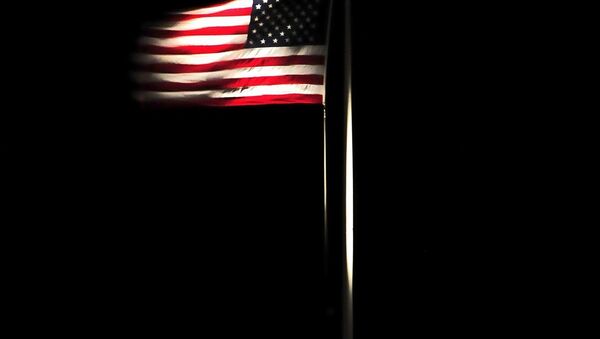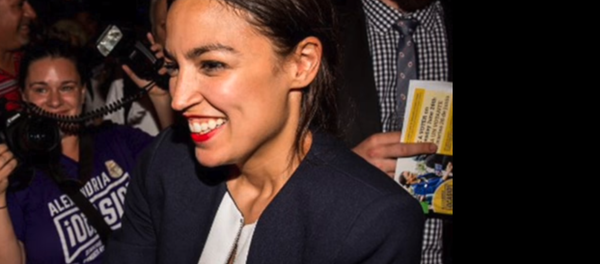Kansans are choosing candidates to serve in the US House of Representatives and a number of statewide elected positions including governor, attorney general, and secretary of state, among others. Polls opened at 6:00 a.m. local time (1100 GMT) and will close at 7:00 p.m. (2400 GMT).
US HOUSE RACES
Kansas for the most part has leaned Republican at both the local and national levels. Currently, all four of its representatives in the US House and all major statewide positions are filled by Republicans. It is also worth noting in the 2016 presidential election then-Republican presidential nominee Donald Trump won the state of Kansas.
In the Democratic primary races for seats in the US House of Representatives, Kansas’s First and Second districts have only one candidate each. The Third District has six democrats.
Professor of Political Science at Washburn University in Topeka, Kansas, Bob Beatty told Sputnik that the primary vote may be very important because two districts (the 2nd and 3rd) could eventually go to the Democrats in the general election.
"Even though Donald Trump won the 2nd District in 2016, Paul Davis, a democrat, won the 2nd District when he ran for governor in 2014. Davis is the Democratic nominee for the District this year and has already raised over $1 million," Beatty said. "In the Republican primary in the 2nd District, there are seven candidates but none of them are very well known and might have a hard time defeating Davis in the general election."
The wildcard in the Republican primary, he added, is newcomer Steve Watkins, a political outsider who has the support of a political action committee run by this father that has put over $500,000 in the race. Watkins, along with most of the other Republican candidates have campaigned on a strong pro-Trump agenda, Beatty said. The third district, the professor continued, could also go Democratic.
"Hillary Clinton won this district in 2016 so national Democrats are thinking it’s possible to win. However, Yoder is a strong incumbent who has built up his own base of voters, and has a lot of money, so it won’t be easy," he explained.
Six Democrats are running in the 3rd District primary for the nomination, Beatty noted, and the two strongest appear to be Brent Welder, who is backed by Bernie Sanders, and Sharice Davids, who is backed by the pro-women’s group, Emily’s List.
"Davids is one of the most interesting politicians in America as she is a Native American, lesbian, former Mixed Martial Arts Fighter. If she wins the nomination she will receive national attention, for sure," he added.
In the 2nd District, all the candidates are strongly behind Trump but a Democrat will await them in November who will try to appeal to moderate Republicans and independents who are not happy with Trump, especially trade issues, Beatty said. In the 3rd District, Democrats are battling in the primary for who can be the most progressive and anti-Trump, so they’ll be doing the same thing against Yoder.
Managing Partner of East-West Strategic Advisors Michael Moore told Sputnik that the state’s second district can be won by a Democratic candidate.
"Because of the retiring of Lyn Jenkins from the 2nd district a democrat candidate could take a conservative Republican District following a trend from Virginia and Pennsylvania giving the idea of more house turnovers credibility and momentum — energizing the Democrats," Moore said.
Sara Marie from Wichita, Kansas, told Sputnik that she believes it is more important now than ever to Kansans that they have honest representatives in office regardless of party affiliation.
"So I don't think they [Kansans] really are considering the national level at all. We have our own state issues that people would love to have addressed at that level," Marie explained.
Take the 2016 primaries for example, Marie added, when people were crossing party lines to vote for Sanders over Clinton. The primaries were packed at each location for Sanders in Wichita while Republicans only had one location for voting.
Professor of Political Science at Emporia State University Michael Smith told Sputnik that two of Kansas’ four Congressional districts have highly competitive races this year.
Former Democratic gubernatorial candidate Paul Davis is running for the second district seat to replace Jenkins, while the Republicans have not yet settled on a front-running candidate to challenge him.
"On the other hand, the Democrats in the 3rd district do not have a clear front-runner to challenge incumbent Republican Kevin Yoder, instead, they have a competitive primary," he added. "Both districts have been represented by Democrats in the past — the 3rd by Dennis Moore in the 1990s and early 2000s and the 2nd by Nancy Boyda in the early 2000s."
Smith went on to say that the fourth district near Wichita is also seen as a longshot possibility for the Democrats because when their former representative Mike Pompeo was appointed to be Secretary of State in the Trump Administration, Republican Ron Estes won against Democrat James Thompson.
"This election is an Estes-Thompson rematch — however, the district usually trends heavily Republican," the professor noted. "The final district, the rural ‘Big First’ in central and western Kansas, is one of the most-Republican Congressional districts in the country."
"Incumbent Kevin Yoder easily leads in name recognition in the 3rd, while in the 2nd, with no incumbent, Davis is easily the most-recognized due to his run for governor in 2014," he explained. "Others will have to raise a lot of money to advertise."
"In the 3rd, Democrats seek to nationalize the election by tying Yoder to Trump, who did not win there. Yoder will counter by localizing — pointing out what he has done for the district," he said. "In the 2nd, on the other hand, Trump is more popular, so Davis will run by stressing what he can do for the district and distancing himself from the national party, while whomever the Republicans nominate will call Davis ‘liberal’ a lot and stress their support for Trump on issues like immigration and gun rights," Smith said.
One wild-card issue that could be a factor, he added, is Trump’s tariffs because they will hurt Kansas farmers when other countries retaliate, which is important given the 2nd district is more rural than the 3rd.
KANSAS GOVERNOR PRIMARY RACES
On Monday, US President Donald Trump took sides against the sitting Republican governor of Kansas, Jeff Colyer, who was tied in recent polls with challenger Kris Kobach.
It was a surprise move for a president to oppose an incumbent in his own party’s primary, but Kobach led Trump’s now-defunct electoral fraud commission.
Democrats, may be rooting for Kobach, the New York Times reported, because many believe he is more beatable than Colyer. The likely Democratic nominee for Kansas governor is state senator Laura Kelly, the report added.
On November 6, voters will choose one third of the US Senate, all 435 seats in the House of Representatives and governors of 36 states.





